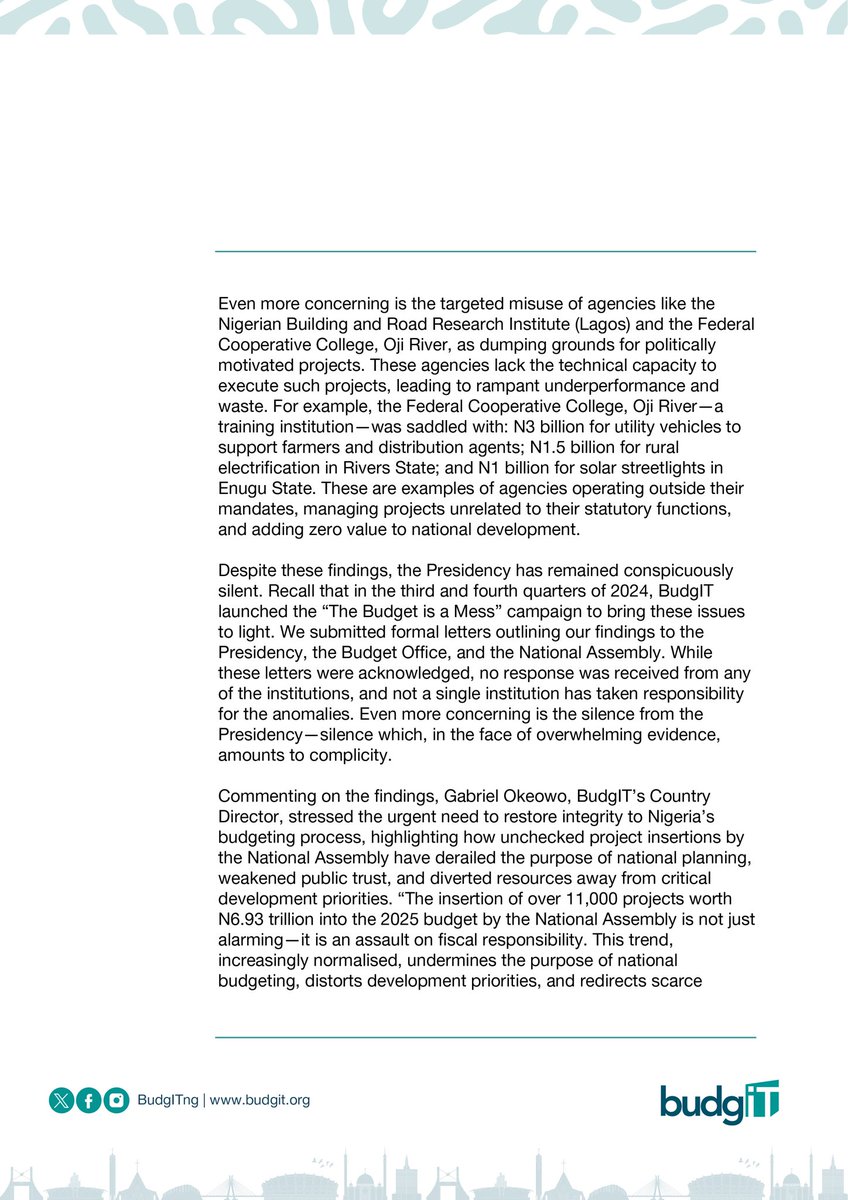BUDGIT APOLOGISES TO LAGOS STATE GOVERNMENT
BudgIT’s State of States report is a snapshot of the fiscal health of all 36 States in the country and it uses four metrics or stress tests to provide a fair overall Fiscal Sustainability Ranking of all the states.
Thread!
BudgIT’s State of States report is a snapshot of the fiscal health of all 36 States in the country and it uses four metrics or stress tests to provide a fair overall Fiscal Sustainability Ranking of all the states.
Thread!

A previous graphic on the ability of states to meet their recurrent expenditure is hereby retracted.
According to Mr. Gabriel Okeowo, BudgIT’s CEO and Principal Lead, “No single metric, when isolated, provides a fair assessment of any state; and none of the tests we used evaluates state’s fiscals for insolvency.”
We are compelled to also use this medium to tender our unreserved apologies to @followlasg for the misrepresentation that has trailed Lagos State in the report.
Indeed, @followlasg cannot be included in the category of States with a recurrent deficit; thus, not borrowing to pay salaries.
Our metrics focused on NET FAAC and IGR as published by the National Bureau of Statistics due to the disparate nature of revenue framework among Nigerian states.
We also apologise for including a special debt financing program as part of the recurrent expenditure which might be a total representation of its finances.
We affirm that Lagos State remains way ahead of many of its peers in terms of fiscal health and the capacity to generate revenue internally; and it also has the least dependency on federally collected revenue distributed through FAAC allocations. 

We regret this inconvenience; hence, the previous design is hereby retracted and a review has been commissioned by our research team.
#StateOfStates
#StateOfStates
• • •
Missing some Tweet in this thread? You can try to
force a refresh























